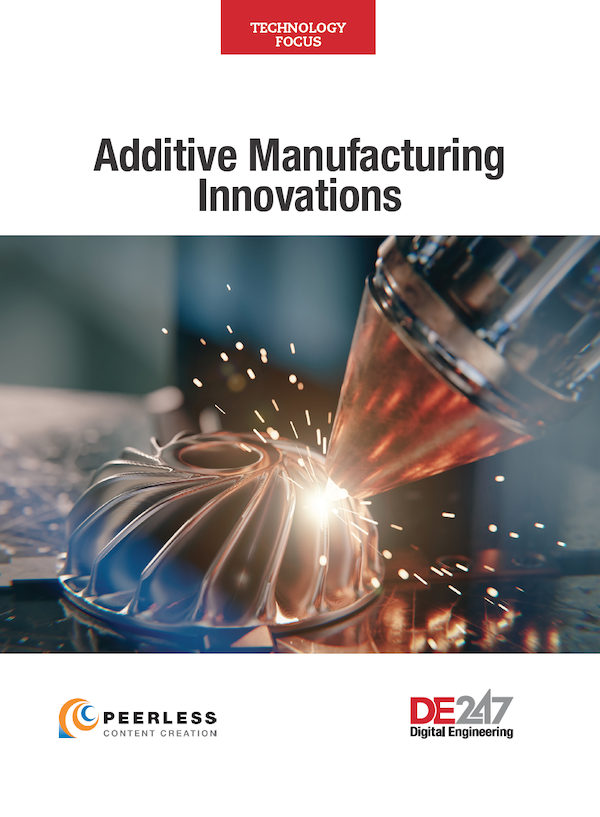Partnership Accelerates Additive Manufacturing Material Qualification
Dyndrite, MIMO Technik and ASTRO Mechanical Testing team to qualify 3D print materials for aerospace and defense.
March 21, 2023
Dyndrite, which provides a GPU-accelerated computation engine used to create next-generation digital manufacturing hardware and software, has partnered with MIMO Technik and ASTRO Mechanical Testing Laboratory to accelerate 3D printing material qualification for manufacturing.
MIMO Technik develops manufacturing solutions in the additive manufacturing (AM) space for aerospace, rocketry, defense and motorsport clients. ASTRO executes mechanical and metallurgical testing for additive materials developed for spaceflight hardware, launch vehicles and satellites. Together the team of experts offers specialized solutions to support critical programs for Aerospace and Defense. Through the MASTRO process, the organizations qualified materials for industry primes such as Boeing, Lockheed Martin, and Northrop Grumman.
According to the company, MIMO Technik and ASTRO chose to collaborate with Dyndrite on the development of the MASTRO process in order to streamline and automate a closed-loop source for additive production and qualification and to continue to be a leader of digital manufacturing for primes and launch vehicle providers.
MASTRO is MIMO Technik and ASTRO’s internal proprietary parameter development process that involves experiments to determine values for all variables that influence the SLM process. Qualified material is now in production for fracture critical hardware such as landing gear, propulsion systems, payload structures, and defense applications.
MIMO Technik and ASTRO will leverage Dyndrite’s software tools to codify MASTRO build recipes which ensures repeatable quality and traceability. Automated build layout, serialization, and reporting are all necessary for a scalable qualification process for machines, materials, and process parameters. Currently MIMO Technik exclusively uses ten (10) SLM Solutions L-PBF machines due to their open architecture, continued support, and philosophy for advancement.
“The business case for being an open architecture metal 3D solution provider is at its core about making our customers more successful,” said Garett Purdon, Vice President of Sales - Americas at SLM Solutions. “It’s about creating choices for our customers and removing arrogance – we’re not a jack of all trades but a true master of one. We acknowledge that others can add additional value.”
“Parameter development and qualification is a tedious and time consuming process,” said Steve Walton, Head of Product at Dyndrite. “Dyndrite’s tools allow users to rationally explore the parameter space of interest using their own algorithms while building upon provided tools. Our APIs are designed to support the user in these studies and algorithmically provide the build and toolpath pedigree to ensure data can be used in research, qualification, and production environments. The build and toolpath automation provided allows engineers to explore the solutions to new process problems, instead of spending energy on manual, error prone data entry.”
To date, 3D metal printing machine calibration and qualification, followed by materials and process development, have been a costly (upwards of $1M), labor intensive, and long duration process often requiring multi-year commitments. The Dyndrite / MIMO Technik collaboration aims to serve as an exemplar for qualifying additive manufacturing processes for Laser Powder Bed Fusion (L-PBF) machines.
Dyndrite recently unveiled its first end-user AM application, Dyndrite Materials and Process Development for LPBF. This GPU-based 3D application was designed for materials and process engineers developing new metal alloys and parts for laser-based 3D metal printing. According to the compay, it takes maximum advantage of the powerful features within Dyndrite’s Accelerated Computation Engine (ACE), including, the ability to perform 3D geometric queries in order to detect and optimize for difficult geometric features such as domes, cantilevers, and thin walls. It provides engineers with the ability to improve build rates by working with multiple layer heights and parameter settings, improves part quality through the use of rational APIs for distributing the process and developing toolpath trajectories, and deploying support strategies that deliver maximum flexibility. Customers using Dyndrite can also create shareable build recipes (Python) that provide all the necessary information required to recreate a build and drive a variety of 3D metal printers, including Aconity, EOS, Renishaw, SLM and others.
“Scaling Digital Additive Manufacturing to an Industrial level is the next step for strategic Aerospace and Defense infrastructure,” said Jonathan Cohen, CEO & Co-founder of Mimo Technik. “Dyndrite is the platform we are using to build that reality. Empowering our engineers from rapid material development to creating qualified aerospace workflows for our growing AM facility.”
Dyndrite and MIMO Technik will further partner to develop advanced scanpath strategies for productivity and quality on SLM machines for a variety of alloys used by MIMO Technik’s customers.
Sources: Press materials received from the company and additional information gleaned from the company’s website.
Subscribe to our FREE magazine, FREE email newsletters or both!






